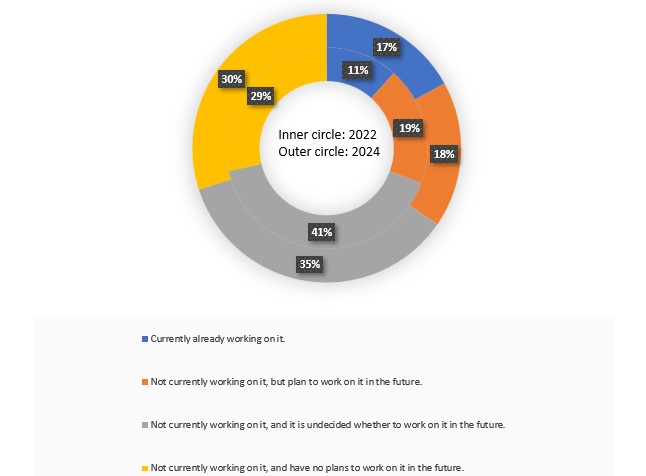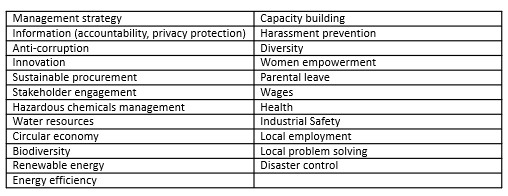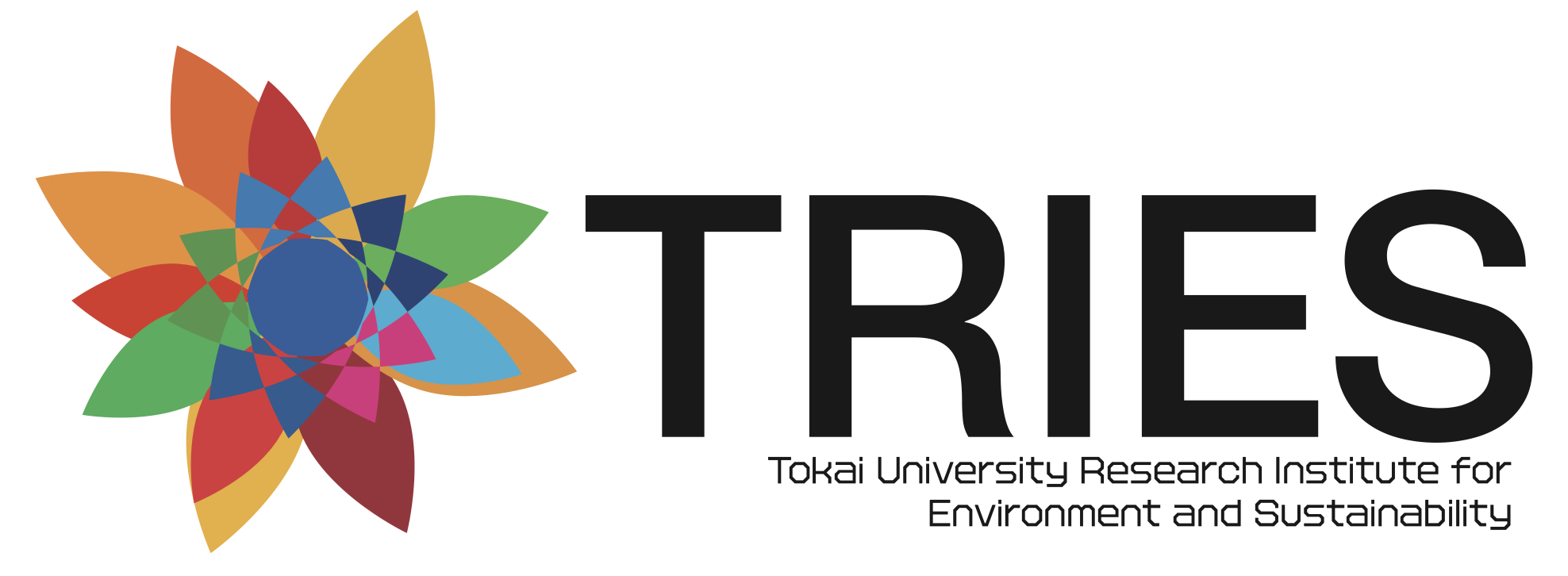Current state of municipal SDG certification systems for SMEs in Japan
12/1 2024
Author: Mari Kosaka
First, there has been little significant change in SMEs’ engagement with the SDGs. According to a survey conducted by the Organization for Small & Medium Enterprises and Regional Innovation (2024), the proportion of companies reporting that they were either “not currently engaged in SDG activities and undecided about future plans” or that they had “no plans to engage” was 70% in fiscal year 2022. By fiscal year 2024, this figure had decreased only slightly to 65% (see Figure 1).

In light of this situation, the Japanese government proposed three municipal support models in 2020: “declaration,” “registration,” and “certification.” Among these, the “declaration” and “registration” models, which do not require formal review, have been widely adopted by municipalities. On the other hand, as of September 2024, the more rigorous “certification” model has been implemented by only ten municipalities, including Yokohama City, Saitama City, Toyota City, Kita Ward in Tokyo, Tottori Prefecture, Hyogo Prefecture, Sapporo City, Sagamihara City, Kitakyushu City, and Okinawa Prefecture.
Although the number of municipalities adopting certification systems remains small, those that have implemented such systems have reported a steady increase in certified companies. For example, Yokohama City, which launched its system in fiscal year 2020, has certified a total of 752 organizations to date. While metropolitan areas typically attract participation from large corporations and other entities, the majority of certified organizations are SMEs. This indicates a strong interest in these systems among SMEs.
The certification criteria established by these municipalities address a wide range of environmental and social challenges outlined in the SDGs. Among the six municipalities that had established criteria by the end of fiscal year 2023 (i.e., Yokohama City, Toyota City, Saitama City, Kita Ward in Tokyo, Hyogo Prefecture, and Tottori Prefecture), detailed standards were developed across approximately 23 areas (Table 1).

On the other hand, the finding that few municipalities have implemented ambitious standards, such as greenhouse gas (GHG) emission reductions consistent with the 1.5°C/2°C climate goals or human rights due diligence initiatives, as mandated internationally, remains a challenge. In addition, not all municipalities possess the capacity to establish such standards and independently conduct certification reviews for applicant companies. Consequently, the existence of organizations capable of supporting municipalities is crucial.
In response to these challenges, the Japan Sustainable Business Organization (JSBO) was established with advice from government bodies, including the Cabinet Office, the Ministry of Environment, and the Small and Medium Enterprise Agency. The JSBO has developed comprehensive sustainable development criteria that are specifically tailored to SMEs and has initiated the development and operation of a certification system in 2024. This certification system is expected to promote collaboration among municipalities and facilitate certification by SMEs in regions where establishing such systems is challenging.
Reference
Organization for Small & Medium Enterprises and Regional Innovation (2024)"Survey on the Promotion of SDGs by Small and Medium-Sized Enterprises (2024): Questionnaire Survey Report" (in Japanese).
